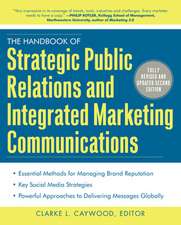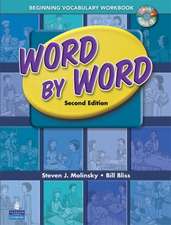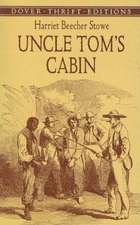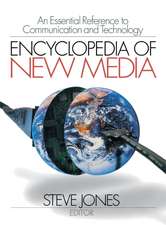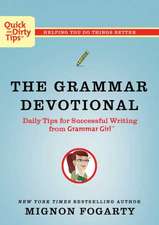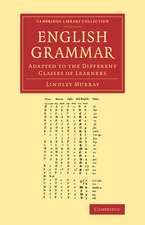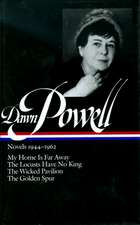The Cambridge History of American Literature: Volume 6, Prose Writing, 1910–1950: The Cambridge History of American Literature
Editat de Sacvan Bercovitchen Limba Engleză Hardback – 27 noi 2002
Preț: 1306.35 lei
Preț vechi: 1696.56 lei
-23% Nou
Puncte Express: 1960
Preț estimativ în valută:
249.96€ • 261.01$ • 206.41£
249.96€ • 261.01$ • 206.41£
Carte tipărită la comandă
Livrare economică 15-29 aprilie
Preluare comenzi: 021 569.72.76
Specificații
ISBN-13: 9780521497312
ISBN-10: 0521497310
Pagini: 640
Dimensiuni: 160 x 236 x 35 mm
Greutate: 1.2 kg
Editura: Cambridge University Press
Colecția Cambridge University Press
Seria The Cambridge History of American Literature
Locul publicării:Cambridge, United Kingdom
ISBN-10: 0521497310
Pagini: 640
Dimensiuni: 160 x 236 x 35 mm
Greutate: 1.2 kg
Editura: Cambridge University Press
Colecția Cambridge University Press
Seria The Cambridge History of American Literature
Locul publicării:Cambridge, United Kingdom
Cuprins
Acknowledgments; Introduction Sacvan Bercovitch and Jonathan Fortescue; I. A cultural history of the modern American novel David Minter: Prologue; Part I. A Dream City, Lyric Years, and a Great War: 1. The novel as ironic reflection; 2. Confidence and uncertainty in The Portrait of a Lady; 3. Lines of expansion; 4. Four contemporaries and closing of the west; 5. Chicago's 'Dream City'; 6. Frederick Jackson Turner in the dream city; 7. Henry Adams's Education and the grammar of progress; 8. Jack London's career and popular discourse; 9. Innocence in the 'Lyric Years': 1900–1916; 10. The Armory Show of 1913 and the decline of innocence; 11. The play of hope and despair; Part II. Fiction in a Time of Plenty: 12. When the war was over: the return of detachment; 13. The 'Jazz Age' and the 'Lost Generation' revisited; 14. The perils of plenty, or how the Twenties acquired a paranoid tilt; 15. Disenchantment, flight, and the rise of professionalism in an age of plenty; 16. Class, power, and violence in a new age; 17. The fear of feminization and the logic of modest ambitions; 18. Marginality and authority/race, gender and region; 19. War as metaphor: the example of Ernest Hemingway; Part III. The Fate of Writing During the Great Depression: 20. The discovery of poverty and the return of commitment; 21. The search for 'culture' as a form of commitment; 22. Three responses: the examples of Henry Miller, Djuna Barnes, and John Dos Passos; 23. Cowboys, detectives and other tough-guy antinomians: residual individualism and hedged commitments; 24. The search for shared purpose: struggles on the left; 25. Documentary literature and the disarming of dissent; 26. The southern renaissance: forms of reaction and innovation; 27. History and novels/novels and history: the example of William Faulkner; II. Fictions of the Harlem Renaissance Rafia Zafar: 1. A new Negro?; 2. Black Manhattan; 3. Avatars and Manifestos; 4. At home and homeless in Harlem; 5. New Negro, New Woman; 6. Thurman and Nugent; 7. Minor writers; 8. Hurston and Wright; 9. Black Modernism; III. Ethnic Modernism Werner Sollors: Introduction; 1. Gertrude Stein and 'Negro Sunshine'; 2. Ethnic lives and 'lifelets'; 3. Ethnic themes, modern themes; 4. Mary Antin: progressive optimism against odds; 5. Who is 'American'?; 6. American languages; 7. 'All the past we leave behind'? Ole E. Rølvaag and the immigrant trilogy; 8. Modernism, ethnic labeling; and the quest for wholeness: Jean Toomer's new American race; 9. Freud, Marx, hard-boiled; 10. Hemingway spoken here; 11. Henry Roth: ethnicity, modernity, and modernism; 12. The clock, the salesman and the beast; 13. Was modernism anti-totalitarian; 14. Facing the extreme; 15. Grand central terminal.
Recenzii
'… this is, without doubt and without any serious rival, the scholarly history for our generation.' Journal of American Studies
'… vast and eminently readable survey of twentieth century American literature …'. Use of English
'… vast and eminently readable survey of twentieth century American literature …'. Use of English
Descriere
Explores the emergence and flowering of modernism in the United States.











